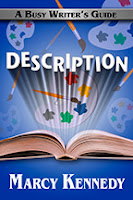Part of the Indie Author Series
In the past few years, independent authors have been gaining access to tools and techniques that were once available only to traditional publishers. One of those tools is ebook pre-orders.
Ebook pre-orders are exactly what they sound like. Your ebook is listed for sale at an online retailer, and readers can purchase it in advance of the release date. Once the book releases, they receive their copy.
Each of the online retailers has different rules about how long a pre-order can run, whether your pre-order can be “asset-less” (set up without a cover image or file to upload), how far in advance of the release date you need to upload the final file, whether or not you can push back your release date, and what penalties you’ll suffer if you miss your release.
Because the rules for each retailer frequently change without notice, I’m not going to go into all of the rules for each. I’m going to look at the more important part of pre-orders—what benefits do they offer us?
A Pre-Order Guarantees Our Book Will Release When We Want It To
A pre-order book will release as soon as the clock ticks over to the day we’ve set as our release date.
If we haven’t set up a pre-order, we can’t actually guarantee how long each retailer will take to make our book live. For example, Amazon says it could take up to 72 hours for a book to go live in their store after we’ve “published” it. That’s a big window. I’ve had books take even longer than this at other retailers when I’ve had to go through an aggregator service like Smashwords or Draft2Digital to reach Barnes & Noble or Apple iBooks.
Having a guaranteed release date means we can reliably set up promotions, plan our marketing, and schedule our newsletter. It takes out the guesswork.
If you have a busy, often unpredictable, schedule like mine, the set-it-up-and-forget-it approach has made my life significantly less stressful.
A Pre-Order Gives You Links to Use
The retailer link our book has during its pre-order remains the same once the book releases. That’s great for a few reasons.
We can use that link when we’re booking ads slots. Many of the newsletter ad services require a link or our book’s retailer ID number before we can book a spot. Considering that most of these services book up weeks (sometimes months) in advance, if we had to wait for our book to be released, we might not be able to get spots during our launch.
We can use that link in the back of our other books. Once a reader finishes one of our books and loves it, we want to make it easy for them to find the next one. A pre-order link gives us a bigger window to catch those readers, especially if we’re a slower writer who isn’t able to publish frequently.
We can use that link if we want to build buzz prior to our book’s release. Any time we talk about our book, we need to think about what action we want the listener to take. It’s ineffective to get someone interested in our book if there’s nothing they can do about it. By the time the book releases, they might have forgotten about us. That means that if we want to talk up our book before its official release, a pre-order gives us a way to catch anyone who’s interested.
We can use that link to schedule our newsletter. This comes back to my fix-it-and-forget-it approach to publishing. I want everything set up ahead of time. I can’t do that if I don’t have links.
Pre-Orders Allow Us to Populate Also Boughts
One of the powerful recommendation tools used by book retailers (especially Amazon) is the Also Bought section, where browsers see what buyers who purchased this book also selected.The sooner our book shows up in the Also Boughts of other books, the better.
Pre-Orders Help Us Increase Our Rank Before Release
For most of us, we’ll be doing our biggest push for our book during its launch in the hope of hitting one of the top 100 lists. The climb from no rank to the rank we need to hit a list is steep, though. If we put our book up for pre-order, it can garner a few organic sales and start its rise before our strong push, making it easier to hit the list we’re aiming for.
On non-Amazon retailers, pre-orders become even more important because sales count toward a book’s rank when the book is pre-ordered and again when it releases. On non-Amazon sites, the longer we can list our book for pre-order, the better to allow sales to accumulate. Many authors have leveraged this to hit the New York Times or USA Today bestseller lists.
On Amazon, a sale only counts when it’s made, so the trick on Amazon is to pick a long enough pre-order to “prime” the sales rank pump, but not so long that you significantly cannibalize your launch sales. What I’ve found works for me is a pre-order of two weeks or less, and I don’t announce the book to my newsletter subscribers until release day. I want the sales before that to be people who stumble upon the book by themselves.
Have you tried a pre-order? Do you think it helped or hurt? Please share any tips I might have missed!
 Marcy Kennedy is a mystery and speculative fiction writer who believes fantasy is more real than you think. Alongside her own writing, Marcy works as a freelance fiction editor and teaches classes on craft and social media. She’s also the author of the Busy Writer’s Guides series of books. You can find her blogging about writing and about the place where real life meets science fiction, fantasy, and myth at marcykennedy.com.
Marcy Kennedy is a mystery and speculative fiction writer who believes fantasy is more real than you think. Alongside her own writing, Marcy works as a freelance fiction editor and teaches classes on craft and social media. She’s also the author of the Busy Writer’s Guides series of books. You can find her blogging about writing and about the place where real life meets science fiction, fantasy, and myth at marcykennedy.com. Blog | Facebook | Twitter | Amazon | Apple iBooks | Barnes & Noble
About Description
 Description in fiction shouldn’t be boring for the reader or for the writer.
Description in fiction shouldn’t be boring for the reader or for the writer. Description: A Busy Writer’s Guide will help you take your writing to the next level by exchanging ho-hum description for description that’s compelling and will bring your story to life, regardless of the genre you write.
In Description: A Busy Writer’s Guide, you will
- find the answer to the age-old question of how much description is too much;
- learn how to use point of view to keep description fresh;
- recognize the red flags for boring description in fiction;
- explore how to use all five senses to bring your descriptions to life for the reader;
- discover the ways metaphors and similes can add power to your descriptive writing;
- gain the tools needed to describe setting, characters, and action in engaging ways;
- learn how descriptions can add conflict, enhance the theme, and amp up emotion; and
- much more.


Thanks, Marcy, for sharing this excellent, thoughtful advice. I'm thinking pre-sales may be considered by many authors, but all the positives involved might not be so obvious.
ReplyDeleteAnd you make a solid business decision easy to understand and implement in a process (book launching/marketing/etc) that can sometimes seems overwhelming.